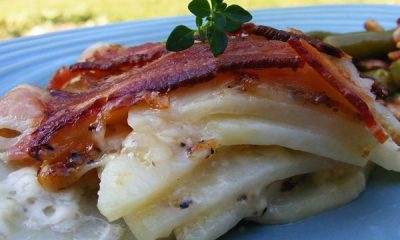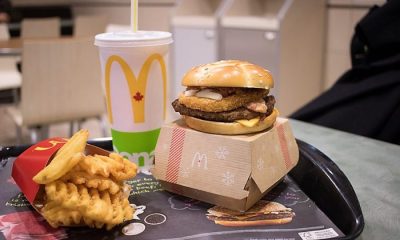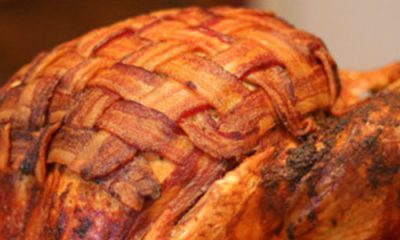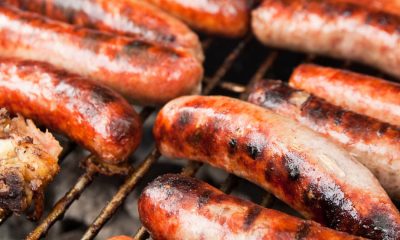Science
We Finally Know Why Bacon Tastes So Good
I like bacon. You like bacon. We all like bacon; that’s a given. But, why is bacon our first love? Science, in its never ending search for the truth has an answer for us.
According to the BBC, various molecules that appear in the bacon making process work together to create the beautiful taste that is bacon. “Some of the major flavour players are the result of the pork belly’s fat breaking down, said Guy Crosby, food scientist and science editor at America’s Test Kitchen. “It’s not just the white marbling that’s in play,” he added.

While cooking, cell membranes from the muscle tissues in the pork belly have fatty acids that release eldehydtes, furans and ketones; in other words, compounds that taste really really good. Furans, for instance, have a nutty, caramel like taste, ketones have a buttery after taste, while eldehydes have a grassy tinge. Together, they unite to create that unique bacon flavour.
Naturally, the diet and the breed of the pig will affect the compounds and quantities of compounds are in the pig’s body and the way the eventual bacon produced will taste.
Smoked or Salted?
when bacon is smoked or salted, compounds from the curing salts, or the smouldering wood affect the way fat is broken down and processed, and therefore the taste of the bacon.

The Malliard Reaction
Uncooked bacon doesn’t smell nearly as delicious as cooked bacon, does it? That’s because when you place the bacon under high heat, the sugars and amino acids combine, in a process called the malliard reaction. This causes even more furas to be released, explaining the sweet tinge that bacon has.
Fake Bacon, I see You
The intricate chemistry behind the taste of bacon is perhaps why bacon substitutes are so far from tasting like the bacon ‘truth’. Will we ever be able to create bacon substitutes that taste as great as the real think? Only time (and science) can tell.





















